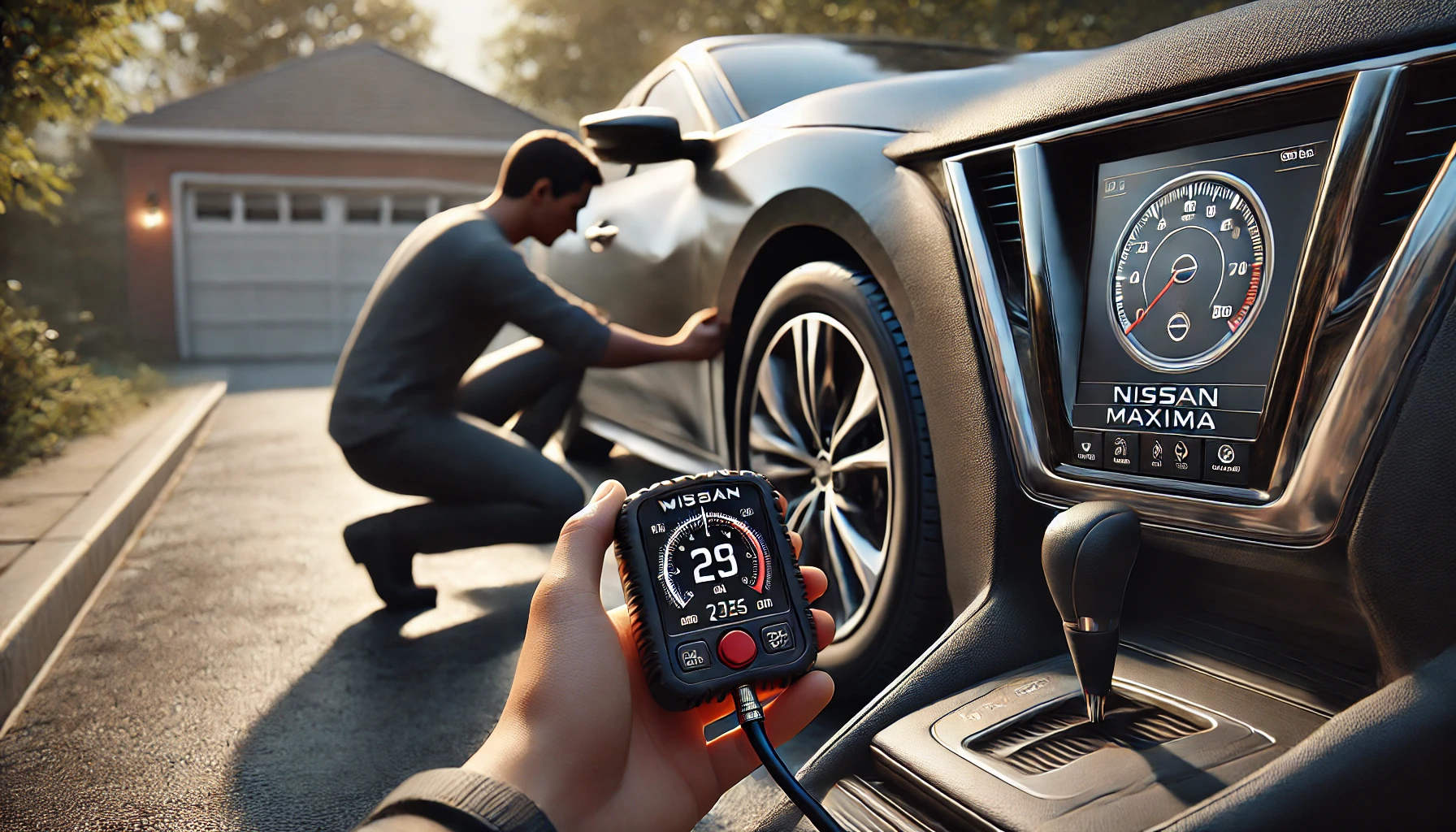
Common Causes of a Tire Pressure Sensor Fault in Nissan Maxima
If your Nissan Maxima is showing a tire pressure sensor warning, these are the most common causes:
1. Low Tire Pressure
Low tire pressure in one or more tires is the most common reason the TPMS warning light turns on. Even small drops in air pressure, especially during weather changes, can trigger the alert.
2. Faulty TPMS Sensors
The tire pressure monitoring system (TPMS) sensors can wear out over time, typically lasting 5-7 years. A dead battery inside the sensor or sensor malfunction could cause a warning light even if your tires are properly inflated.
3. Tire Rotation or New Tires
If you’ve recently had your tires rotated or replaced, the TPMS might need recalibration. New sensors or repositioned ones need to sync with the car’s system to work correctly.
4. Temperature Drops
In colder weather, the air inside tires contracts, causing a slight decrease in tire pressure and potentially triggering the warning light. This is common during winter or in cold mornings.
5. Communication Issues Between Sensors and ECU
Sometimes, the sensors are functioning but can’t communicate properly with the vehicle’s onboard computer. This may require a system reset or professional troubleshooting.
How to Fix the Tire Pressure Sensor Warning on Your Nissan Maxima
1. Check Tire Pressure
Using a tire pressure gauge, manually check all tires, including the spare if your Maxima has one. Ensure they are inflated to the recommended PSI (usually around 33-35 PSI). After inflating them, the TPMS light should turn off after driving for a few minutes.
2. Reset the TPMS
To reset the TPMS on your Nissan Maxima:
- Turn the ignition to the “ON” position without starting the engine.
- Hold the TPMS reset button (often under the dashboard) until the warning light blinks three times.
- Start the car and drive for 10-20 minutes at 25-30 mph to allow the sensors to recalibrate.
3. Replace Faulty Sensors
If resetting the system doesn’t work, one or more TPMS sensors could be faulty. A professional mechanic or dealership can use a diagnostic tool to determine which sensor needs replacement.
4. Consult a Mechanic
If all else fails, visiting a mechanic or a Nissan dealership is the next step. They can diagnose the problem with specialized equipment and ensure the TPMS is working as expected.
Preventing Future TPMS Issues
- Check tire pressure regularly, especially during temperature shifts or long trips.
- Ensure TPMS sensors are checked during tire services or rotations.
- Replace sensors that are 5+ years old to avoid sudden failures.
